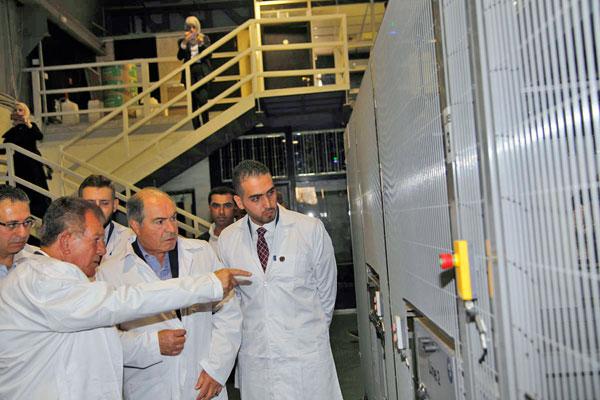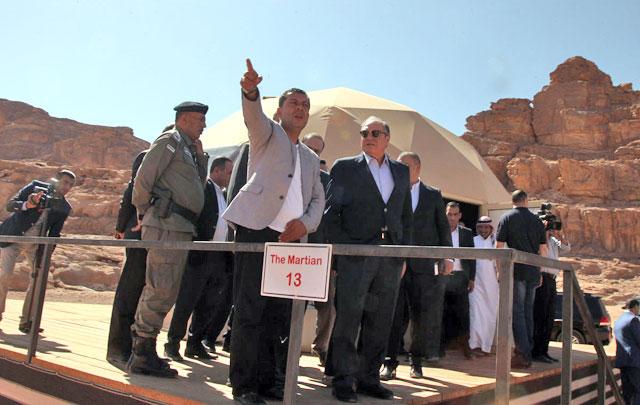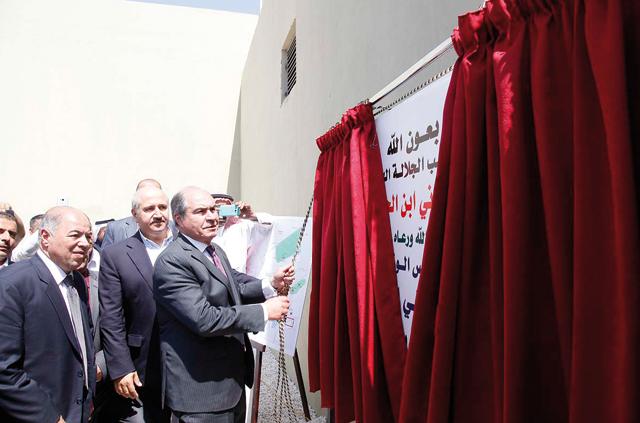You are here
PM inaugurates new development projects in Central Badia
By JT - Oct 26,2017 - Last updated at Oct 26,2017

Prime Minister Hani Mulki, accompanied by a ministerial team, on Thursday visited the Central Badia region and inaugurated a number of development and service projects (Petra photo)
AMMAN — Prime Minister Hani Mulki, accompanied by a ministerial team, on Thursday visited the Central Badia region and inaugurated a number of development and service projects, the Jordan News Agency, Petra, reported.
The PM met with deputies, dignitaries and elders of the region as well as investors in the industrial city of Muwaqqar.
During a meeting at former minister Jamal Khreisha’s house, the premier said: “I came here to assure you that the situation is good and that things are going on the right path.”
He pointed out that the holistic reforms implemented by Jordan will “enable us to hand over the homeland to the next generation in a better situation than what we inhertal from our forefathers”.
Mulki stressed that the government will resolve the challenges facing the Kingdom and work with all the “seriousness and sincerity” to build “the Jordan we want”.
The Prime Minister started his field visit to the Central Badia with the inauguration of a water network project to Baseleih and Shahba. Mulki listened to a briefing by Water Minister Hazem El Nasser about the project. El Nasser noted that the project, which was funded with a grant from UNICEF, includes a water network and conveying lines to provide drinking water with the aim of alleviating water shortages in these two towns.
Mulki also visited the Philadelphia Solar Energy Company in the Qastal region and toured the plant and reviewed the production process of solar panels using modern technology. He then visited the Pine Tree garment factory in Muwaqqar industrial city.
The PM met with investors in Muwaqqar industrial city and stressed the government’s pride in the progress made by the industry sector and its reliance on modern technology.
He pointed out that the “right time for reform” was during the period between 2000 and 2009 when the economy was growing at a rate of 6.5 per cent, adding that after 2010, regional and local conditions hindered the process, necessitating the need for economic reforms.
Related Articles
AMMAN — Prime Minister Hani Mulki on Thursday stressed that the government is seeking political reform through legislative changes and decen
AMMAN — Prime Minister Hani Mulki on Monday inaugurated several water projects in the badia expected to serve more than 45,000 citizens at a
AMMAN — The Jordan Industrial Estates Company (JIEC) has managed to draw a JD2 million Syrian investment project to Al Muwaqqar Industrial E


















